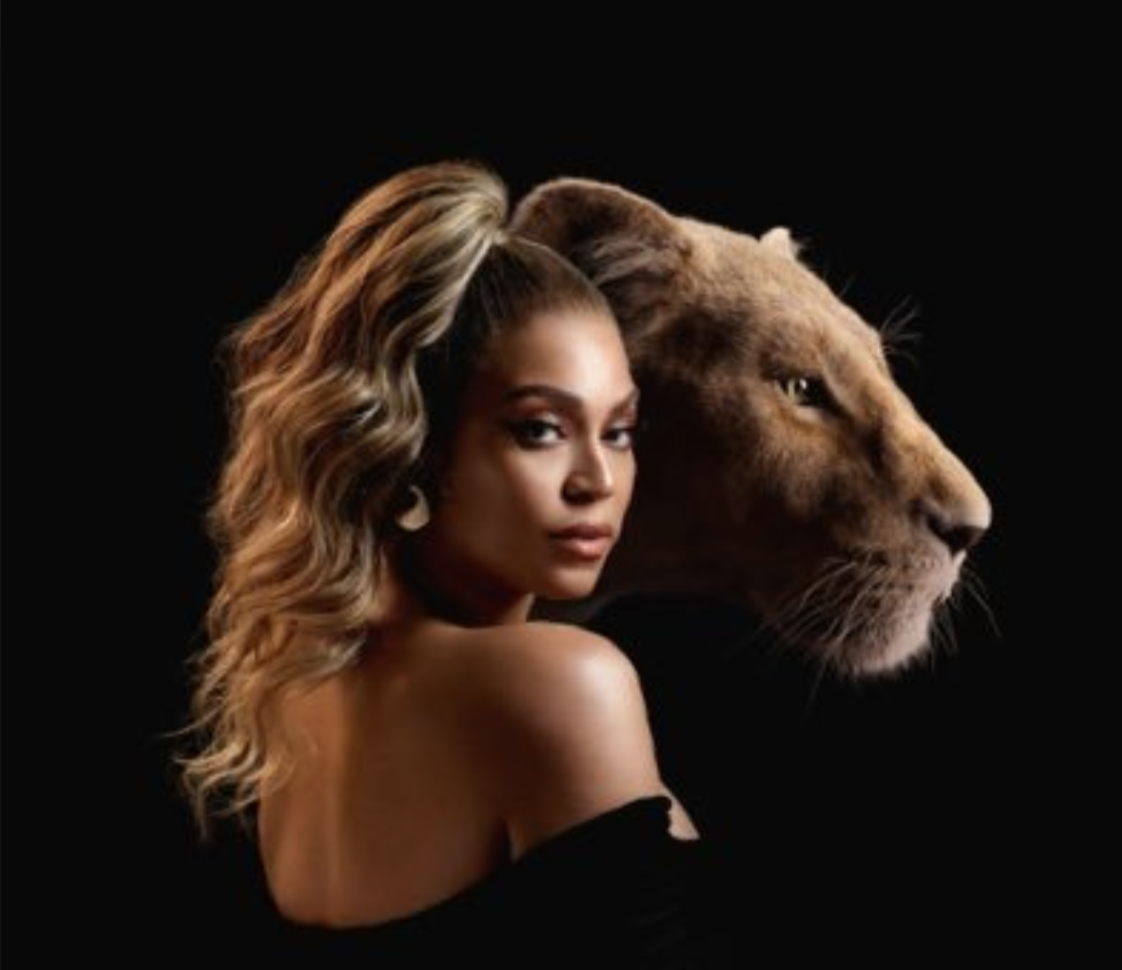Before quickly devolving into a sort of remixed and revisited version of “Halo,” Beyoncé’s original song, “Spirit,” written for the new version of The Lion King Soundtrack, commences with a chant in Swahili that translates to, “Long live the king.” What Bey (who voices Nala under the not so feminist moniker of Beyoncé Knowles-Carter) really seems to be declaring, however, is: “Long live the queen.” Or lioness queen, as Bey appears to be doing her best to channel the leonine energy of her character on the single’s cover artwork.
With similar sonic and lyrical motifs to, incidentally, Jennifer Lopez’s perhaps more uplifting and more convincing in its “upliftingness” “Limitless” (chockfull of its own The Lion King/Pride Rock visuals) from the Second Act Soundtrack, “Spirit” can’t help but come across as utterly commonplace in its “inspirational” message. To boot, J. Lo manages to exhibit more specific empowerment in declaring, “I am a woman who roars/Nobody opens my doors.” If only the music supervisors of the film had gotten to Lopez sooner. Or Katy Perry, with the tailor-made 2013 hit, “Roar.” But no, as usual, Beyoncé, who must have some touch of the Leo in her birth chart, ascended to the top to claim her unspoken right to record new music for not just one of the most beloved Disney movies, but also one of the most beloved films (animated or otherwise) of the 90s.
As such, one would think that Beyoncé might seek to take the opportunity to come up with a composition that’s slightly less…generic. Sure, it was expected of Elton John–he’s the embodiment of White Man’s music a.k.a. “easy” listening (gay card cachet or not). He’s got no bar to set, hence the existence of “Can You Feel the Love Tonight.” Yoncé, on the other hand, has higher stakes involved with her proverbial offering to the kingdom. An offering that lazily touts, “Yeah, yeah, and the wind is talkin’/Yeah, yeah, for the very first time/With a melody that pulls you towards it/Paintin’ pictures of paradise.” Not to mention paintin’ pictures of heavens opening thanks to divine destiny. For yes, Bey embraces her Texas Christian roots with the biblical allusion, “And be one with the Great I Am, I Am.” It feels like a far cry from the more salacious innuendoes of the original The Lion King, which famously spelled out SEX in the sky where Beyoncé seems to be talking about God rather than sin shining down on Mufasa’s dominion. Mufasa, whose voice is still mercifully delivered by James Earl Jones (for who else could live up to those thick as molasses intonations?).
And, of course, Beyoncé’s own voice is honeyed in its pitch perfectness. At the same time, there is almost something in that “perfection” that makes the song feel even less genuine. As was much the case with Ariana Grande (occasionally featuring John Legend) in her rendition of “Beauty and the Beast.” However, at the very least, it was just that: a rendition. Not her own original composition designed to stand the test of time until yet another remake once enough decades have passed and another generational demand is created.
While it is clearly Beyoncé’s intention to empower a new formation (Bey pun intended) of The Lion King enthusiasts as she also captures the hearts of aging millennials anew, there is no oomph to “Spirit.” No real gusto. It is as frivolous and throwaway as an early Britney Spears ballad (or even a late one, if we’re being candid, as basically only “Everytime” has endured). In truth, one might be more inspired listening to the Jewel album of the same name.



















